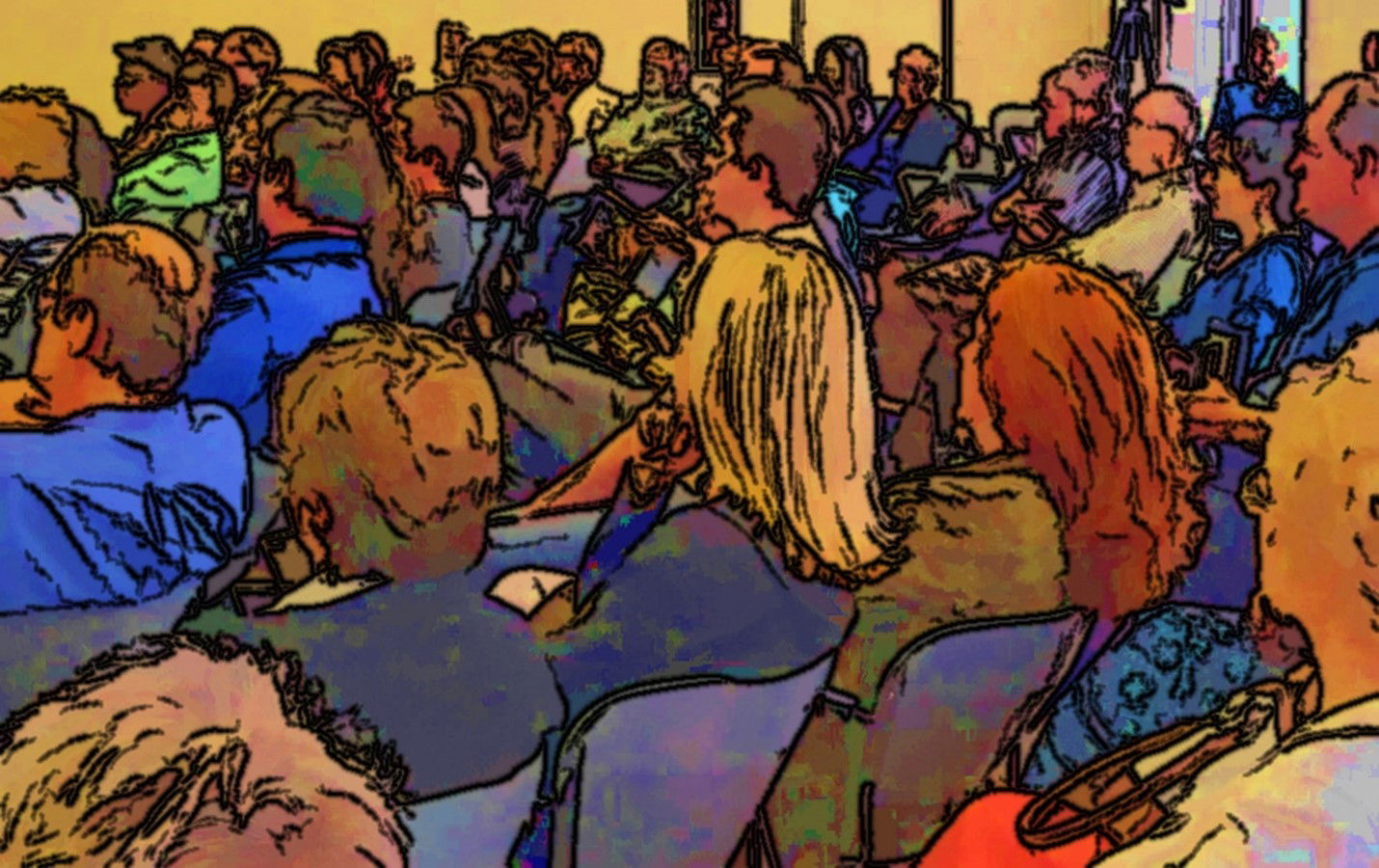The Art of Concert Etiquette for Musicians and Audience

This article is intended for a more formal concert setting, that is for performances of more classical types of music (in its generally accepted broader sense). This includes professional and school settings. The recommendations here could also be used for pop music of all sorts, although the barriers would be much looser.
In pop arenas, the music is as much about the stage performance, lights and fog as it is about the singers and musicians. For serious musicians, there have been many hours of practice and rehearsal devoted to the performance of the music as nearly perfect as possible. Such a concert is presented as much more than mere fluff entertainment, but rather as an immersion into emotions, memories and communication beyond mere words.
The thrill of live music is a feast for the soul, where musicians and audience members alike become embraced by the melodies, harmonies, and rhythms created in a concert setting. Whether you're a seasoned musician or an enthusiastic attendee, understanding and practicing good concert etiquette is crucial for ensuring an enchanting and seamless musical experience.
Below is a guide to concert etiquette for both musicians and the audience. Martin Luther once said, “Music is a Fair and Glorious Gift of God”. He also said, “I wish to see all arts, principally music in the service of Him who gave and created them. I would not for all the world forego my humble share of music. Singers are never sorrowful, but are merry, and smile through their troubles in song. Music makes people kinder, gentler, more staid and reasonable. I am strongly persuaded that after theology there is no art that can be placed on a level with music; for besides theology music is the only art capable of affording peace and joy of the heart”.
Having said that, let’s explore what make a great concert experience for everyone, while striving to uphold the sanctity of musical performances while fostering a respectful and enjoyable environment.
For Musicians:
- Preparation and Punctuality – The journey to a flawless performance begins long before you step onto the stage. Practice is finished. Anything learned and adopted during group rehearsal should be fresh in your mind. If there are any particularly troublesome spots, you can go over them, even if only in your mind. Most of your playing goes on in your mind, anyway. Arrive early, well-prepared, and in proper concert attire. If you drive, make sure you park in the right area. Warm up and tune your instrument before the performance, showing respect for your fellow performers and the audience's time.
- Respect and Cooperation – Every member of the ensemble contributes to the sound as a whole. Respect the conductor's guidance and follow the cues. It’s important that you exercise the cooperation you showed at rehearsals to create a unified performance. Listen attentively, respond to your fellow performers, and adjust when needed to maintain cohesion. It has been said that musicians need more than two eyes. The first two are for the music itself. Another eye needs to be directed at the conductor. Two more are needed, one for the section leader and the last for the audience and your environment in general. In short – pay attention.
- Stage Presence and Engagement – Expressiveness and passion enhance the musical experience. Maintain a professional yet engaging stage presence. Engage with the audience through your performance while also respecting the ambiance of the music being played. . Avoid distractions, excessive movement, or talking while on stage. Remember that you are part of a whole. Anything that detracts from that, like hand or foot motions (pointing or waving at someone in the audience or dancing) that aren’t part of the performance can spoil the overall performance
- Post-Performance Demeanor – Once the performance concludes, acknowledge the applause graciously. In some cultures, it’s actually appropriate to applaud the audience. When that is done, the performers hold their hands out in front of them as if to say “We appreciate your applause”. Avoid any unnecessary noise or movement until it's appropriate to leave the stage. Supporting your fellow performers until the end of the concert fosters a sense of unity and camaraderie.
For the Audience:
1. Arrival and Seating – Arrive early to find your seat so you won’t risk interrupting a performance that has already started. Be seated before the concert begins. It shouldn’t need to be said, but, make sure you “go” before the concert starts, so as not to interrupt it. Avoid unnecessary movement during the performance to maintain the focus on the music.

2. Respectful Listening – Show your appreciation by actively listening. Silence cell phones and any other electronic devices. A number of studies have revealed that those who participate in an activity, whether a concert, a dinner or a hike, without any electronic devices enjoy that activity more and have far better recollections of it than those who recorded or took pictures of it. Refrain from talking, and avoid unnecessary rustling or unwrapping of items. The serene atmosphere contributes to a deeper connection with the music. Occasionally, someone neglects to be quiet, talking somewhat loudly during a thunderous part of the music, only to be embarrassed when the music suddenly goes quiet or stops altogether.
3. Applause and Support – A Concert band, String Orchestra or Choral Group always appreciates heartfelt applause. For the audience, it’s important to applaud only at appropriate times, such as the end of a piece or when the conductor or soloist is acknowledged. However, be mindful of prolonged applause that might disrupt the flow of the performance. Support the musicians with your enthusiastic yet controlled response.
Here is an important thing to remember, especially at concert band or orchestra concerts - Some pieces of music are made up of a number of sections (sonatas and concertos in particular). Do Not applaud between the sections. The reason for the silence between them is to allow the previous music to soak into the listener’s mind and soul. Here are two ways to know when to applaud. One, if the rest of the audience applauds, you may. An even more accurate way to know is, if the conductor’s arm is raised, do not applaud. If it’s relaxed, then you may.
4. Understanding Boundaries – Each concert setting might have specific rules or cultural norms. Respect these guidelines, such as refraining from taking photos or recordings if it's prohibited. You may think that such a request is so that they may sell recordings or photos and so make money off of you. But, for many concerts, a performance right fee has been paid for one or more of the musical works; this prevents an infringement of copyright, whereby musicians make their living. Additionally, if attending with children, ensure they understand the importance of quiet and attentive listening.
When everyone, performers and audience alike, employs good concert etiquette, the overall concert experience is not only merely enjoyable, but fulfilling as well. By keeping to these simple guidelines, the concert hall transforms into a sanctuary where music and respect harmonize beautifully.
Salt Cellar Creations understands the beauty and power that a live concert can bring. We have a growing library of original works and arrangements for Concert Band, Choral Groups and String Orchestras, whether public, private or homeschooled. Explore the offerings HERE.
SCC can also compose an original piece for you or do a custom arrangement for you. There are two ways that this can be done; one is much more affordable than the other. And SCC is always looking for ideas of pieces to arrange or suggestions for original pieces.
We have sold music not only in the US but in Canada, the United Kingdom, France, Australia, and New Zealand. Please visit the WEBSITE or CONTACT US to let us know what we can do for you!